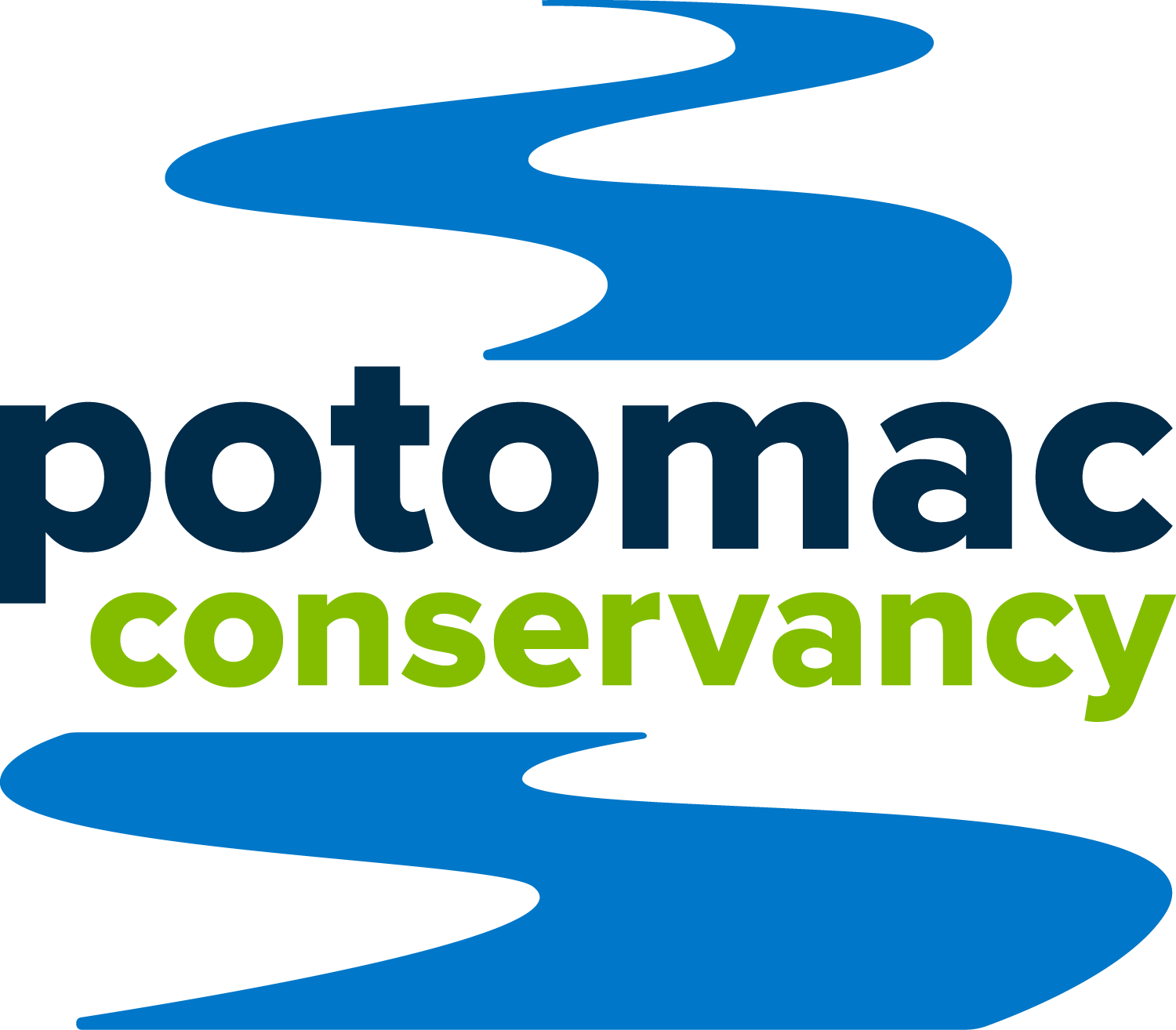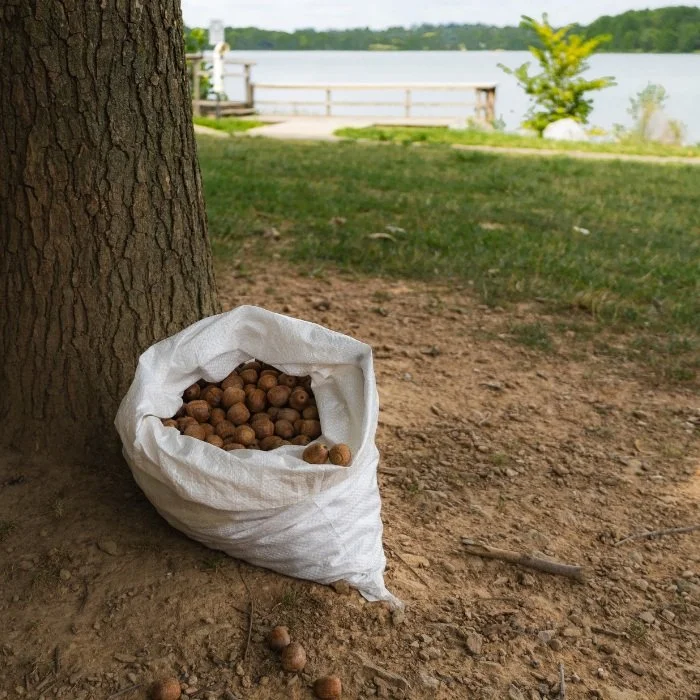From sapling to adulting, follow the journey of tomorrow’s trees
/Trees are the Potomac River region’s clean water warriors—learn how you can become one too!
What’s a tree’s favorite drink? Root beer! 🙃
We all know that water is the vital source of life that trees need to grow and thrive. But did you know that water needs trees too?
Healthy trees are essential for clean water because of their intricate root systems that naturally filter pollutants, excess nutrients, and sediment. By preventing them from flowing into our waterways, trees can significantly impact water’s turbidity, or cloudiness, which is a key indicator of its quality. By slowing down rainfall through canopies and helping water soak into the soil, trees also help reduce stormwater runoff. What's more, streamside trees provide streambank stability that's needed to prevent erosion that causes even more sediment pollution.
In short, we love trees—and we’re on a mission to reforest the Potomac River region.
Today’s seeds, tomorrow’s trees
Our newly launched Tomorrow’s Trees initiative engages community members to help create future forests by collecting native tree seeds. These seeds are then donated to state nursery farms, where they are nurtured and transplanted for use in local reforestation projects. We collaborate with a wide variety of partners who share a deep commitment to meeting our region’s clean water goals, and we are excited to advance nature-based solutions to restore the Potomac River to full health.
But in order to reforest the Potomac River region with millions of trees, tens of millions of seeds are needed. And with seed quality and quantity being stressed by changing climate patterns, literally every seed counts. That’s where our amazing volunteers come in!
Last fall, Tomorrow’s Trees volunteers collected over 650 lbs of native tree seeds — mostly black walnut and wild cherry, but also willow oak, white oak, Northern red oak, overcup oak, and swamp oak.
So, what happened to all of these seeds when the program entered its winter slumber?
From seed to sapling
At the end of the seed collection season, seeds collected in Virginia were donated to our partners at the Virginia Department of Forestry’s Augusta Nursery in Crimora, VA, while seeds collected in Maryland were gifted to John S. Ayton Tree Nursery in Preston, MD.
Once seeds arrive at a nursery, they are sorted for quality. Only a small percentage will be viable, as timing is a delicate issue. White oaks, for example, can be germinated soon after seed collection, while other species may need to be cold stratified over the winter months, which delays the ability to determine how many will grow into adult trees.
Different types of seeds will then continue to grow into seedlings on their own time. These baby trees will then support state planting programs such as Tree-Mendous Maryland, Backyard Buffers, Virginia Trees for Clean Water, or the Virginia Conservation Assistance Program. Or, they may be made available for purchase and planting on private property (here’s where to buy native tree seedlings in Maryland and Virginia).
Both the Augusta and Ayton tree nurseries depend on sapling sales to fund their operating costs. Community seed donations, such as those provided by Tomorrow’s Trees, mean that they can save money on seed sourcing while making low-cost trees available to consumers and community programs. It’s a twig-twig! Um, we meant win-win.
From baby tree to clean water warrior
Spring and fall are planting seasons for trees! Fall plantings benefit trees by allowing tree roots to get established before winter dormancy. This gives trees a head start to enter springtime with undisturbed roots, and time to build resilience before the stressors of summer heat.
Spring is also a great time to plant trees, though spring trees have less time to prepare their roots to access deeper water than may be necessary to make it through hot summers (that are only going to get hotter).
But whether planting in spring or fall, a water and a maintenance plan are critical in the first few years of establishing a tree. And in a short period of time, tiny trees will start repaying all of this care by providing a multitude of clean water benefits, increasing the health of local waterways.
Native trees are well adapted to local rain cycles, and they don’t require special nutrients or fertilizer as they are adapted to utilize the nourishment that is readily available to them in the soil. They also support biodiversity—acorns, for example, are one of the most nutrient dense food sources available in nature (and loved by many 🐿)!
See why we love trees so much?
Join us in supporting local reforestation efforts and fighting for clean water for all!
✉️ Sign up for alerts to learn more about Tomorrow’s Trees volunteer opportunities, including how to become a volunteer leader and host local seed collection events or kiosks, how to map tree species in your community, and more!
📱 Visit the Tomorrow’s Trees website to learn more about the program and follow us on Facebook, Instagram, and TikTok.
🐕 Join us at the 2nd annual ALX DogWalk on April 29th! Potomac Conservancy is the honorary nonprofit host and will be tabling at the event to share information about our tree and seed program! Proceeds from this event will benefit the Tomorrow’s Trees program.
🌳 Are you a Virginia resident? Help foresters map tree plantings on your property or in your community by completing the state’s My Trees Count Survey.
🌱 Are you in Maryland? Plant trees with StreamLink Education this spring!
Partner with us!
Tomorrow's Trees is a collaborative community effort, and our coalition is expanding rapidly! Thank you so much to the Virginia Department of Forestry, Maryland Department of Natural Resources, and StreamLink Education for their invaluable partnership.
Thank you also to Greater Baltimore Wilderness Coalition, Alliance for the Chesapeake Bay, Gunpowder Valley Conservancy and other organizations that are currently working with us to expand the reach of our seed collection and tree collection efforts.
If you want to partner with us, we’d love to hear from you! Please reach out to Senior Director of Community Conservation Alexis Dickerson at dickerson@potomac.org to learn more.











